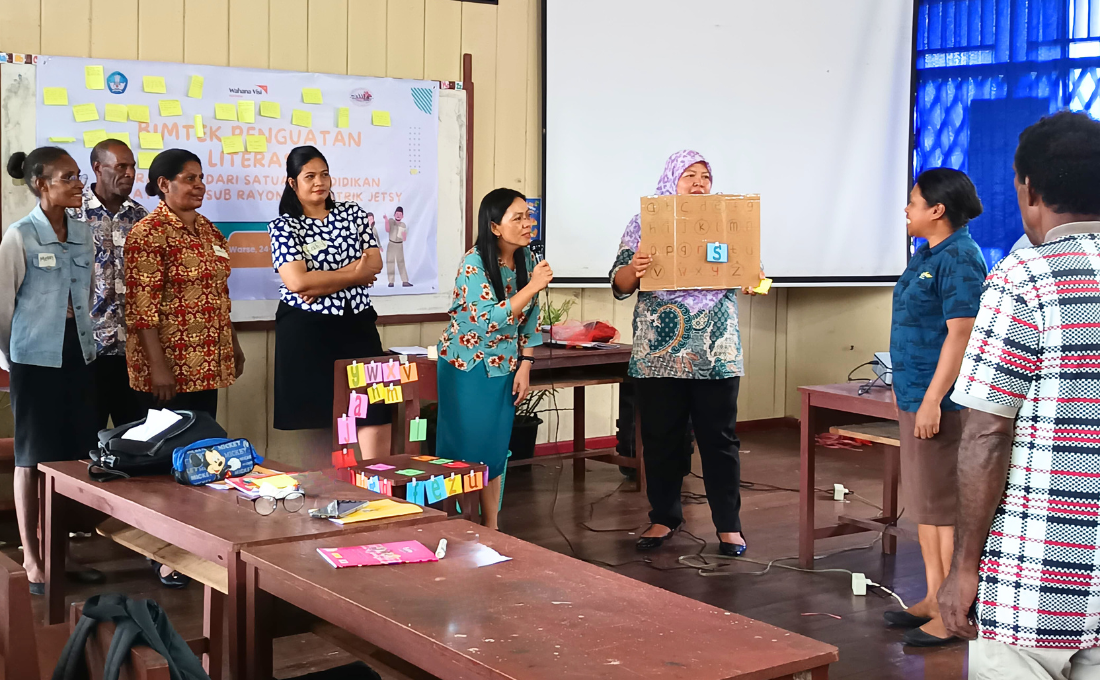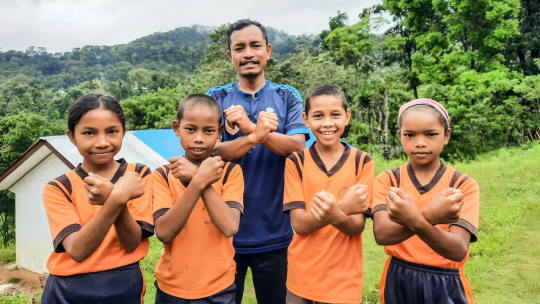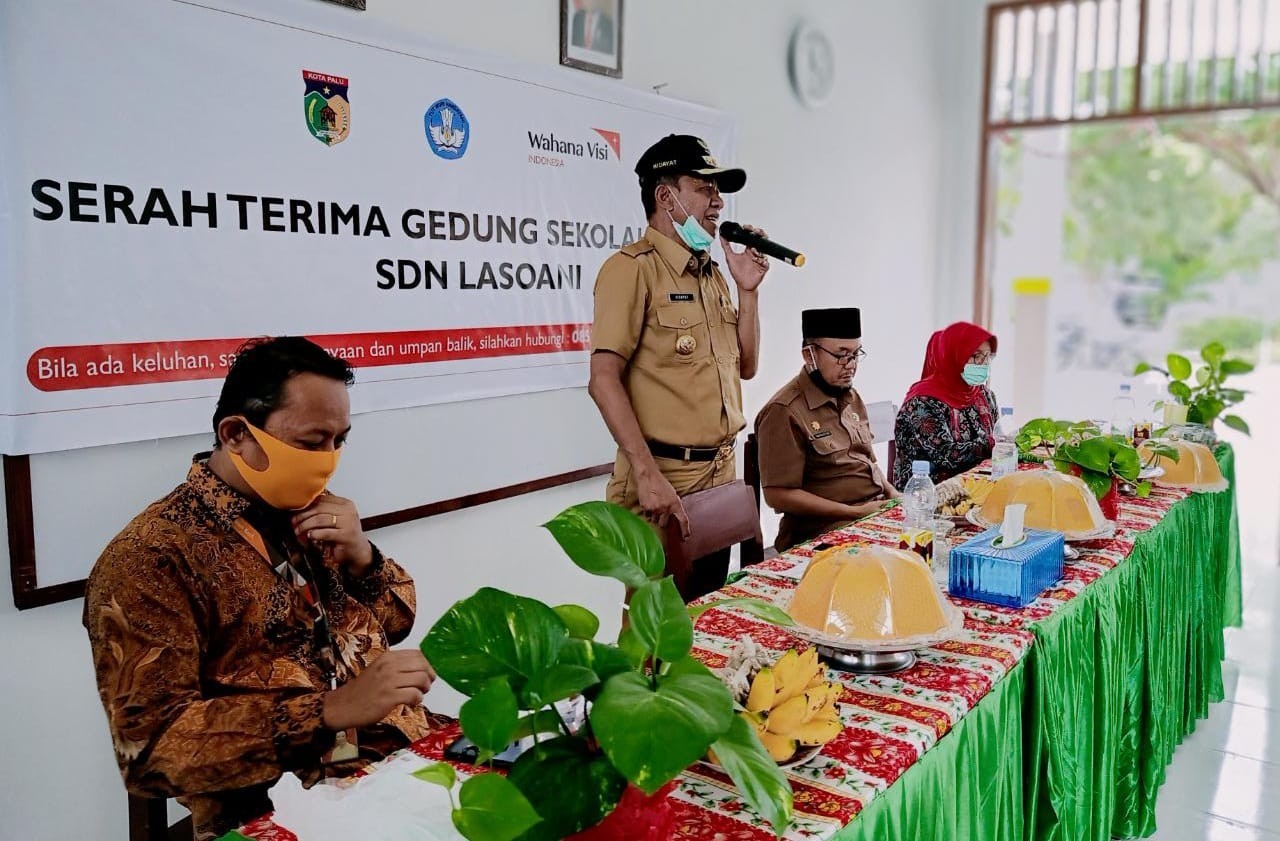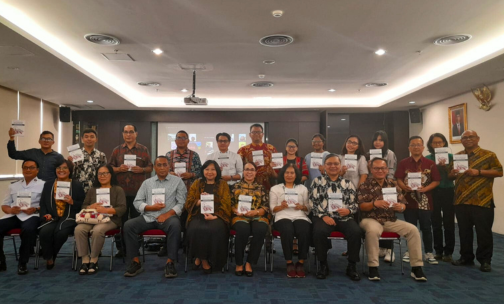Educators Challenges in Asmat and How to Overcome It

Wahana Visi Indonesia continuously strives to improve the well-being of children and communities through activities that broaden horizons, particularly in education, via their Wahana Literasi programme model. Wahana Literasi comprises four main components, one of which is teacher capacity development. WVI's operational office in Asmat, Papua, works intensively with the Agats Diocese to support four primary schools in effectively implementing Wahana Literasi. One activity held is training for teachers across various levels, from nursery to primary school.
Elsa (41 years old) is one of the nursery school teachers who participated in the teacher training activities at a school supported by WVI. She has experienced several challenges while teaching at one of the most remote nursery schools in Indonesia. "A rather significant challenge I face is that the caretaker of the nursery building often locks the gate if their salary is delayed, so we can't get in to teach. Besides that, the children are often taken by their parents when they go to the bevak (a temporary shelter or settlement) or to town. Because, children will naturally follow their parents wherever they go," explained the woman who has been a nursery school teacher for three years.
Elsa has become accustomed to these various challenges. Primary school teachers frequently encounter similar issues. These challenges are not new; they have existed for a long time. Teachers are, in a sense, challenged to be more creative in addressing these various obstacles.
"The way we encourage the children to come to school is usually by making them cakes, sometimes mung bean porridge. So, if their parents go to town or the bevak, the children don't go with them because there's food prepared at school. These methods are quite effective in getting the children to attend school. Furthermore, my fellow teachers and I, especially the nursery teachers, are required to be more creative, particularly in our teaching methods, so that the children don't get bored while at school," she said.
In addition to the challenge of student attendance, Elsa also feels the need for capacity development to teach effectively yet enjoyably. She also recognises that children in Asmat currently have low literacy skills. This significant issue can be addressed and prevented if teachers become more skilled at introducing and teaching literacy in the classroom in creative ways.
"This training was incredibly enjoyable and broadened my knowledge for teaching at the nursery level, and I particularly enjoyed the discussion or group work sessions because each participant had their own ideas. I hope this kind of activity will be held again in the future," concluded Elsa.
Author: Maksimus Asrul (Field Facilitator for Asmat Area Programme)
Editor: Mariana Kurniawati (Communication Executive)



